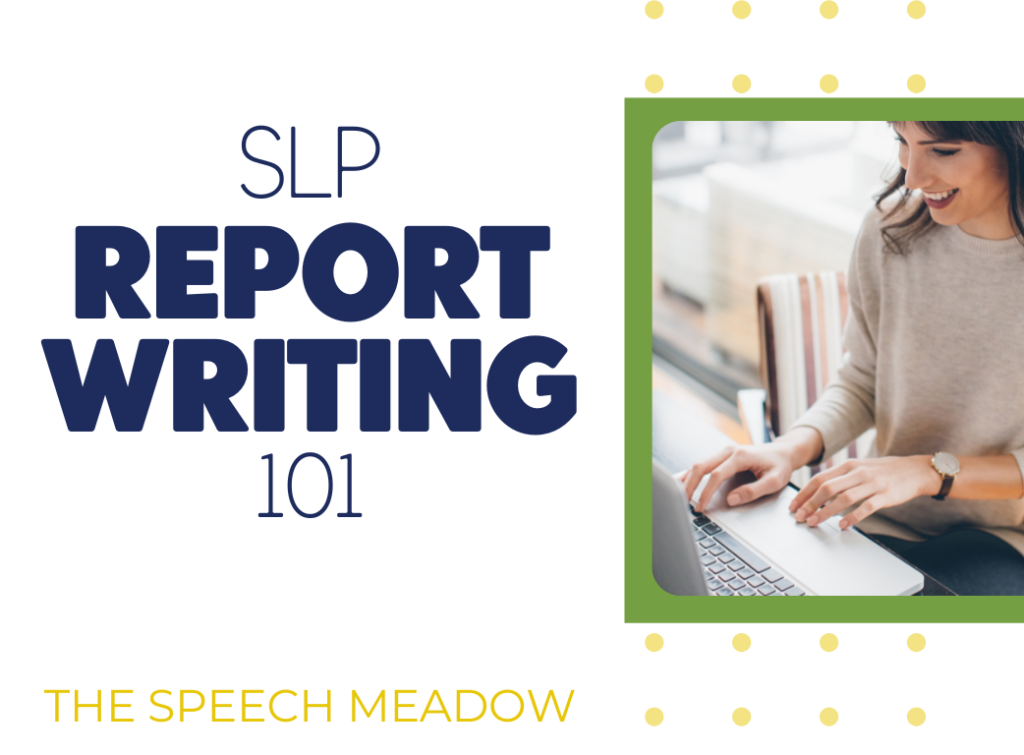
1. Who is your audience?
An essential aspect of report writing is to know who is going to read it. Just as important, is to identify or anticipate the background knowledge of the people who are going to read the report. For me, most of my reports are not read by other SLPs. They are read by parents. For many, English is not their first language. Most don’t have the background or haven’t yet been immersed in all the jargon us SLPs love to use. My reports are also read by doctors, who may or may not be as well versed in speech and language development as we would like. Finally, reports are often read by people who determine the types of funding and services a child will receive. In my case, these people are typically not SLPs. Knowing when to include technical jargon and when to back off relies heavily on who is reading your report(s).
2. Why are you writing this report?
This is closely tied to the question, “Who is your audience?” What is the purpose of the report? Is this to make a referral to a clinic (e.g. get a swallow study done)? Is it to help the family receive additional services? Is it to re-qualify for services? Each type of report can sound very different. What I include in a report for children who will definitely qualify for services next year can look very different from a child who may not qualify or from a child who is moving on to his neighbourhood school. The vocabulary I use can be very different. What I include and don’t include can also be very different.
3. What kind of vocabulary are you going to use?
This is a big one for me. It always amazes me, but really it shouldn’t, that what language we SLPs use and consider basic really isn’t. In one of my first years as an SLP, I had a parent come up to me and asked me to “decode” and “translate” her son’s speech and language report from another agency. At that point, her son had had speech services for about four years. She was struggling to understand some “basic” terminology such as receptive language. I have also had some very highly educated parents ask me what a preposition was, and what are visuals?
Move away from the jargon as much as you can. If you are going to use more technical language then back it up with definitions and examples. This will help those non-SLPs reading the report understand what we are trying to say. So include more words such as comprehension along with receptive language and pictures along with visuals. This can be challenging, using technical vocabulary can feel like a warm blanket in the winter. It’s warm and comforting. It can sometimes be challenging to describe terms that are clear and easily understood by people with little or no background.
4. Did you include the necessary information or sentences that are required for this type of report?
There are certain sentences or phrases that I need to include in a report in order to have a child qualify for services. I have to talk about how a child’s deficits will negatively impact their education. If I don’t include this part, it could affect whether they get approved or not. If I’m writing this report to help a family get more comprehensive home services, I need to talk about how the parents and child are struggling in the home. When I write letters recommending a Video Fluoroscopy Swallow Study (VFSS) for a little one, I have to write out Video Fluoroscopy Swallow Study. If I’m not explicit they might not get their VFSS, or it may not be deemed a priority, and they are put further down the waitlist. Lastly, what are your licensing body, school or program requirements? It can be a lot to remember. When I first started my job, I had a checklist on what I needed to have in each report. That way I knew I had all necessary information.
I am not a master report writer by any stretch of the imagination. In fact, when I first started my career, my reports were atrocious. I worked very hard at improving them, and these are the parts of report writing that I am very conscious about and are areas that I often see as needing to improve in others reports. If you’re interested in language sample, check out this blog post.
Happy report writing!
